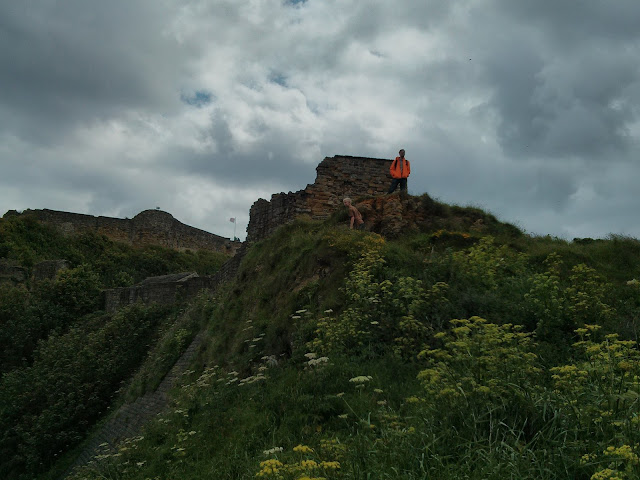Ordinary Wolves by Seth Kantner
I read this over the weekend for a local book club, mostly motivated by a desire to refute someone's suggestion that it might be a "man's book." I'm not sure why I felt so compelled to argue about that particular issue, but whatever.
It's a coming-of-age story about a white kid who grows up in an igloo in Northern Alaska, uncool with the local Eskimos, who live in a village, and later uncool in the city of Anchorage. (He does become cool later, though.) It was really an amazing book: the writing was very good (it reminded me of the great writing in Peace Like a River, another excellent first novel), and it's a good, though sometimes depressing story (depressing mostly because of how the government so easily ruins native communities, just like in the old days, but with money and alcohol and free houses instead of guns and alcohol and jes' killin'em).
Anyway, it's amazing to read about life in the middle of nowhere in Alaska. And probably accurate, since the author grew up that way himself (and still lives in Northwestern Alaska). Worth reading.


I just finished reading this book last night -- I was fighting Erin for it after she bought it, but gave up and let her finish it first. It was a very engaging read, which surprised me since I've never been interested in Jack London and things like that. This is a myth-shattering tale. If you want to have happy glowing ideas about the noble Eskimos, taking only what they need, and using every part of the animal, living in harmony with the land; or the intelligent, curious, understanding outsiders who report to us about nature and distant tribes; or the value of assistance (government, religious, or charitable) to "less developed" peoples; or even tourists who want to see distant places -- don't read this book. One strong motif is that "Everyone's a Bigot", as the song by The Offs from 1978 goes. Eskimos are bigots, whites are bigots, you and I are bigots, everyone's a bigot. But some more than others, really. It's sad to see that the old Eskimo ways were already mostly dead in the 1970s when Abe and his kids went to live in the far north. Only a few elders still lived the old ways, but most Eskimos lived in trashy small towns, dirty, uneducated, intoxicated, breeding recklessly, paying little attention to their children, shooting animals indiscriminately, adopting the worst attributes of American culture while sneering at any real whites who visited from the "lower 48". A few fawning whites visited and reported on the Eskimo harmony with nature that they only could imagine, since it simply wasn't there anymore. Growing up is rough in many ways for anyone, anywhere, and Cutuk has lots of challenges. Despite the depressing undercurrent, it's a mostly happy ending for a number of the main characters. The unintentionally evil government and its welfare programs will continue to destroy the native Alaskans, but there's still some space for people to live more independently, and some of the people in the story do progress and improve. It's a fascinating story, and deserves to be more widely read.
ReplyDelete